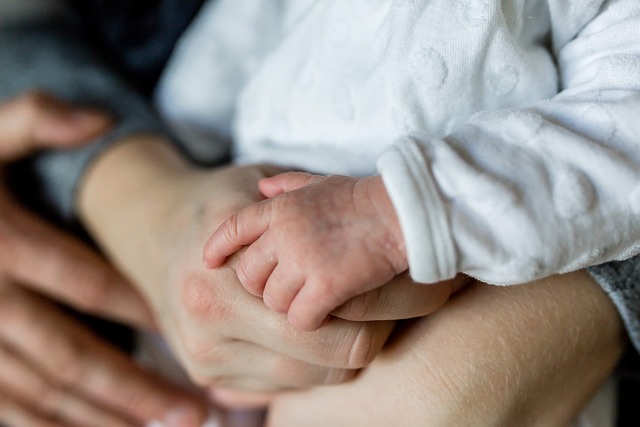In Oregon, especially within Marion County, the Child Welfare System safeguards at-risk children through a network of services, including DHS child protective services. Understanding your parental rights and navigating Oregon Family Law is crucial in DHS cases. The Marion County Child Advocacy Center offers specialized child welfare legal services, empowering parents to protect their rights while ensuring the best interests of the child. Qualified attorneys demystify court processes, advocate for positive outcomes, and safeguard against missteps, fostering a balanced approach that respects both family connections and child welfare.
“Unraveling the intricate web of the child welfare system is paramount to safeguarding our future generations. This article delves into the fundamental aspects of child protection, especially in the context of DHS (Department of Human Services) child welfare cases. We explore parental rights—a crucial pillar in these proceedings—and emphasize the significance of legal representation in ensuring fairness, particularly in Marion County’s Child Advocacy efforts. Additionally, we dissect Oregon family law’s influence on child protective services, offering valuable insights for families navigating these complex legal territories.”
- Understanding the Child Welfare System and Its Role in Protecting Children
- Parental Rights: What Every Parent Should Know in DHS Child Welfare Cases
- The Importance of Legal Representation in Marion County Child Advocacy
- Exploring Oregon Family Law and Its Impact on Child Protective Services
- Navigating the Complexities: Ensuring Fair Treatment in DHS Proceedings
- Resources and Support for Families Involved in Child Welfare Cases
Understanding the Child Welfare System and Its Role in Protecting Children

The Child Welfare System is a network of services designed to protect and nurture children who may be at risk or in need. Its primary role is to ensure the safety, health, and well-being of minors, especially those facing abuse, neglect, or family crises. This system includes various agencies, such as the Department of Human Services (DHS) in Oregon, which handles child protective services. In Marion County, the child advocacy team plays a crucial role in supporting vulnerable children and families.
When a child is involved in a DHS child welfare case, understanding one’s rights under the law is essential. Parental rights protection is a cornerstone of the child welfare legal services landscape. The Oregon Family Law provides guidelines for all parties involved, ensuring that each child receives the necessary support while also safeguarding the rights of parents and guardians. This balanced approach fosters a fair process, especially when navigating complex situations like these.
Parental Rights: What Every Parent Should Know in DHS Child Welfare Cases

In DHS child welfare cases, parental rights are a critical aspect that every parent should be aware of when dealing with Oregon’s child protective services law. These rights protect parents’ ability to make decisions regarding their children and ensure they receive adequate legal representation. Understanding one’s entitlements is crucial, especially when facing potential removal or placement of a child in foster care.
Parents involved in such cases have the right to be informed about the process, question authorities, and actively participate in any court proceedings related to their child’s welfare. They can seek child welfare legal services to help navigate the complex Oregon family law system and ensure their voices are heard. The Marion County child advocacy approach emphasizes the importance of protecting parental rights while promoting the best interests of the child, fostering a fair and just process for all families.
The Importance of Legal Representation in Marion County Child Advocacy

In Marion County, child advocacy centers play a pivotal role in ensuring the well-being and legal rights of children involved in DHS child welfare cases. Legal representation is an indispensable component of this system, as it provides crucial protection for both the child and their family. When navigating Oregon family law, especially in complex DHS child welfare cases, having qualified attorneys specializing in child welfare legal services can make a significant difference. These legal professionals are equipped to guide parents through the intricate process, ensuring their parental rights are upheld.
By providing representation, these lawyers offer more than just legal advice; they advocate for the best interests of the child while also safeguarding the family’s rights and privacy. They help demystify the often-intimidating court processes, enabling parents to actively participate in decisions affecting their children. This support is vital, as it fosters a sense of empowerment and ensures that families are not merely passive recipients of decisions but active partners in the child welfare system.
Exploring Oregon Family Law and Its Impact on Child Protective Services

In Oregon, the interplay between family law and child protective services (CPS) is a critical aspect of ensuring justice for both children and their families. The state’s robust Oregon Family Law framework provides a solid foundation for protecting parental rights while also offering guidelines for CPS interventions. When it comes to DHS child welfare cases, especially in Marion County, these legal principles come into play, shaping the approach taken by child advocacy groups and the court system.
The Oregon Family Law covers various aspects, including adoption, custody, and visitation rights, all of which are pertinent to CPS cases. It emphasizes the best interests of the child while also recognizing the importance of maintaining familial bonds whenever possible. This dual focus ensures that, in situations where a child is removed from their home due to abuse or neglect, the legal system navigates these delicate matters with sensitivity and fairness, ultimately aiming to facilitate positive outcomes for both the child and their parents.
Navigating the Complexities: Ensuring Fair Treatment in DHS Proceedings

Navigating the complexities of the child welfare system can be daunting for parents involved in DHS (Department of Human Services) proceedings. Ensuring fair treatment requires a deep understanding of parental rights protection under Oregon family law and the specific procedures within Marion County child advocacy. Legal representation from qualified child welfare legal services is pivotal in this process, as it provides a safeguard against potential missteps and ensures that all parties’ interests are considered.
Experienced attorneys specializing in DHS child welfare cases can help parents understand their rights, navigate the intricate legal landscape, and advocate for the best outcomes for their children. This support is crucial, especially given the high-stakes nature of such cases. By leveraging knowledge of the child protective services law, these legal professionals can challenge inappropriate interventions, protect parental relationships, and foster positive resolutions that align with the family’s unique circumstances.
Resources and Support for Families Involved in Child Welfare Cases

Families involved in child welfare cases often face complex and emotionally charged situations. Fortunately, various resources and support systems are available to help navigate this challenging process. Oregon’s Department of Human Services (DHS) provides a range of child welfare legal services aimed at protecting both children and parental rights. The Marion County Child Advocacy Center, for instance, offers comprehensive support services tailored to the unique needs of families in DHS child protective services law cases.
These services include legal advice, representation, and counseling to ensure that parents understand their rights and options throughout the case. Oregon family law experts can help guide families through the legal process, advocate for their interests, and ensure that all parties involved receive fair treatment. Whether it’s attending court hearings or assisting with documentation, these resources empower families to actively participate in decisions affecting their children’s welfare.






